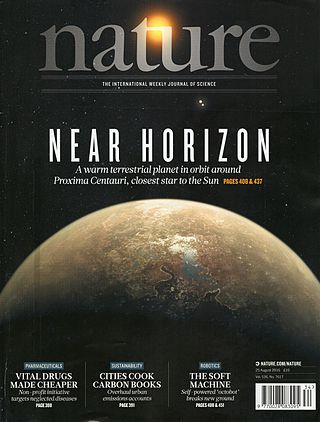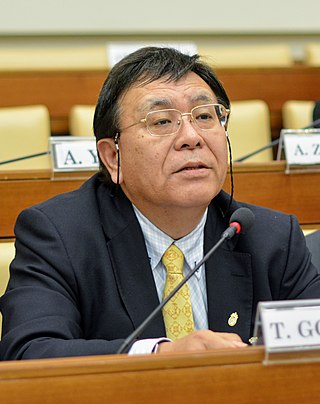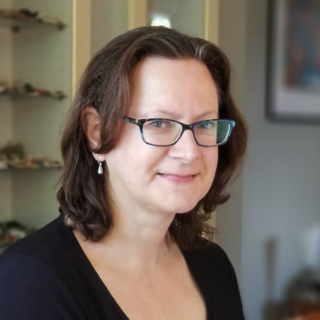Related Research Articles
Scientific misconduct is the violation of the standard codes of scholarly conduct and ethical behavior in the publication of professional scientific research.

Nature is a British weekly scientific journal founded and based in London, England. As a multidisciplinary publication, Nature features peer-reviewed research from a variety of academic disciplines, mainly in science and technology. It has core editorial offices across the United States, continental Europe, and Asia under the international scientific publishing company Springer Nature. Nature was one of the world's most cited scientific journals by the Science Edition of the 2022 Journal Citation Reports, making it one of the world's most-read and most prestigious academic journals. As of 2012, it claimed an online readership of about three million unique readers per month.

Academic publishing is the subfield of publishing which distributes academic research and scholarship. Most academic work is published in academic journal articles, books or theses. The part of academic written output that is not formally published but merely printed up or posted on the Internet is often called "grey literature". Most scientific and scholarly journals, and many academic and scholarly books, though not all, are based on some form of peer review or editorial refereeing to qualify texts for publication. Peer review quality and selectivity standards vary greatly from journal to journal, publisher to publisher, and field to field.
BioMed Central (BMC) is a United Kingdom-based, for-profit scientific open access publisher that produces over 250 scientific journals. All its journals are published online only. BioMed Central describes itself as the first and largest open access science publisher. It was founded in 2000 and has been owned by Springer, now Springer Nature, since 2008.
In academic publishing, a retraction is a mechanism by which a published paper in an academic journal is flagged for being seriously flawed to the extent that their results and conclusions can no longer be relied upon. Retracted articles are not removed from the published literature but marked as retracted. In some cases it may be necessary to remove an article from publication, such as when the article is clearly defamatory, violates personal privacy, is the subject of a court order, or might pose a serious health risk to the general public.
Proceedings of the Royal Society is the main research journal of the Royal Society. The journal began in 1831 and was split into two series in 1905:
In academia and librarianship, conference proceedings is a collection of academic papers published in the context of an academic conference or workshop. Conference proceedings typically contain the contributions made by researchers at the conference. They are the written record of the work that is presented to fellow researchers. In many fields, they are published as supplements to academic journals; in some, they are considered the main dissemination route; in others they may be considered grey literature. They are usually distributed in printed or electronic volumes, either before the conference opens or after it has closed.

Randy Wayne Schekman is an American cell biologist at the University of California, Berkeley, former editor-in-chief of Proceedings of the National Academy of Sciences and former editor of Annual Review of Cell and Developmental Biology. In 2011, he was announced as the editor of eLife, a new high-profile open-access journal published by the Howard Hughes Medical Institute, the Max Planck Society and the Wellcome Trust launching in 2012. He was elected to the National Academy of Sciences in 1992. Schekman shared the 2013 Nobel Prize for Physiology or Medicine with James Rothman and Thomas C. Südhof for their ground-breaking work on cell membrane vesicle trafficking.

Nature Protocols, published by the Nature Publishing Group, is an on-line scientific journal publishing methods in a recipe-style format. The journal was launched in June 2006 and the content includes both classical methods and cutting-edge techniques relevant to the study of biological problems. The content on this site is divided into "Nature Protocols" and the "Protocol Exchange".

Takashi Gojobori is a Japanese molecular biologist, Vice-Director of the National Institute of Genetics (NIG) and the DNA Data Bank of Japan (DDBJ) at NIG, in Mishima, Japan. Gojobori is a Distinguished Professor at King Abdullah University of Science and Technology (KAUST) in Thuwal, Saudi Arabia. He is a Professor of Bioscience and Acting Director at the Computational Bioscience Research Center at KAUST.
Open peer review is the various possible modifications of the traditional scholarly peer review process. The three most common modifications to which the term is applied are:
- Open identities: Authors and reviewers are aware of each other's identity.
- Open reports: Review reports are published alongside the relevant article.
- Open participation: The wider community are able to contribute to the review process.
Marcus Thomas Pius Gilbert is an evolutionary biologist. His work is very highly cited, and influential in the fields of palaeogenomics, evolutionary genomics and evolutionary hologenomics. He is currently the Director of the University of Copenhagen's Center for Evolutionary Hologenomics
Scholarly peer review or academic peer review is the process of having a draft version of a researcher's methods and findings reviewed by experts in the same field. Peer review is widely used for helping the academic publisher decide whether the work should be accepted, considered acceptable with revisions, or rejected for official publication in an academic journal, a monograph or in the proceedings of an academic conference. If the identities of authors are not revealed to each other, the procedure is called dual-anonymous peer review.
Frontiers Media SA is a publisher of peer-reviewed, open access, scientific journals currently active in science, technology, and medicine. It was founded in 2007 by Kamila and Henry Markram. Frontiers is based in Lausanne, Switzerland, with other offices in London, Madrid, Seattle and Brussels. In 2022, Frontiers employed more than 1,400 people, across 14 countries. All Frontiers journals are published under a Creative Commons Attribution License.

eLife is a not-for-profit, peer-reviewed, open access, scientific journal for the biomedical and life sciences. It was established at the end of 2012 by the Howard Hughes Medical Institute, Max Planck Society, and Wellcome Trust, following a workshop held in 2010 at the Janelia Farm Research Campus. Together, these organizations provided the initial funding to support the business and publishing operations. In 2016, the organizations committed US$26 million to continue publication of the journal.

Akiko Iwasaki is a Sterling Professor of Immunobiology and Molecular, Cellular and Developmental Biology at Yale University. She is also a principal investigator at the Howard Hughes Medical Institute. Her research interests include innate immunity, autophagy, inflammasomes, sexually transmitted infections, herpes simplex virus, human papillomavirus, respiratory virus infections, influenza infection, T cell immunity, commensal bacteria, COVID-19 and Long COVID.
Jessica Polka is a biochemist and the Executive Director of ASAPbio, a non-profit initiative promoting innovation and transparency via preprints and open peer review. She was one of the organizers of a recent meeting they held on scholarly communication.
Miranda Robertson is a scientific editor. She is known for serving as Biology Editor at Nature from 1983 to 1992, during which time Nature's visibility and influence in the life sciences substantially increased, and for her contributions to the influential textbook Molecular Biology of the Cell. As editor of BMC's open-access Journal of Biology, she introduced pioneering improvements in the process of peer review, including the ability for authors to opt out of re-review.

Elisabeth Margaretha Harbers-Bik is a Dutch microbiologist and scientific integrity consultant. Bik is known for her work detecting photo manipulation in scientific publications, and identifying over 4,000 potential cases of improper research conduct, including 400 research papers published by authors in China from a research paper mill company. Bik is the founder of Microbiome Digest, a blog with daily updates on microbiome research, and the Science Integrity Digest blog.
Carol Shoshkes Reiss, an American viral immunologist, has been professor in New York University's department of biology since 1991. Her research focused on the dynamic contest between the mouse immune system and virus replication during infection of the central nervous system. Reiss was editor-in-chief of the journal Viral Immunology (2000–2006) and is currently editor-in-chief of the journal DNA and Cell Biology (2012–present).
References
- 1 2 "BMC Biology". BioMed Central. Retrieved 2022-04-03.
- ↑ "BMC Biology Shares Rejected Papers' Peer Reviews with Other Journals". The Scientist Magazine®. Retrieved 2022-04-03.
- ↑ "BMC Biology – NPRC" . Retrieved 2022-04-03.
- ↑ Caputo, Joseph. "The editors are in—Let's Chat with Cell". crosstalk.cell.com. Retrieved 2022-04-03.
- ↑ "Journal shares peer reviews of rejected papers with rival titles". Times Higher Education (THE). 2019-01-02. Retrieved 2022-04-03.
- ↑ Smits, R. H. M., Pells, R. (2022). Plan S for Shock: Science. Shock. Solution. Speed.. United Kingdom: Ubiquity Press. p165
- ↑ Penzes, Peter, et al. "Dendritic spine pathology in neuropsychiatric disorders." Nature neuroscience 14.3 (2011): 285-293.
- ↑ Keane, Thomas M.; Goodstadt, Leo; Danecek, Petr; White, Michael A.; Wong, Kim; Yalcin, Binnaz; Heger, Andreas; Agam, Avigail; Slater, Guy; Goodson, Martin; Furlotte, Nicholas A. (Sep 2011). "Mouse genomic variation and its effect on phenotypes and gene regulation". Nature. 477 (7364): 289–294. doi: 10.1038/nature10413 . ISSN 0028-0836.